
LOS TEQUES, Venezuela — They say prison life can be lonely, but not for Raúl Isaías Baduel, Venezuela’s former army chief and once one of President Hugo Chávez’s confidants, who was detained last month.
Among his cellmates in the Ramo Verde military prison here are a former admiral, Carlos Millán, and Wilfredo Barroso, a onetime general arrested along with Mr. Millán on charges of conspiring to oust Mr. Chávez.
Since February, Mr. Chávez has moved against a wide range of domestic critics, and his efforts in recent weeks to strengthen his grip on the armed forces have led to high-profile arrests and a wave of reassignments.
These are seen here as part of a larger effort by Mr. Chávez to cement loyalty in the military, where some officers are growing resentful at what they see as his micromanagement and politicizing of a proud and relatively independent institution.
“Chávez does not have the support he thinks he has in the armed forces,” Mr. Baduel, 53, said in an interview in the cell that has become his home since agents from the military intelligence service arrested him, shoving him into a vehicle and holding a pistol to his temple.
In March, Mr. Chávez replaced the chiefs of the army, the air force and the Bolivarian Militia, a Cuban-inspired reserve force created to repel what Mr. Chávez repeatedly raises as the threat of an invasion by the United States.
During the same wave of dismissals, Mr. Chávez also cashiered his defense minister, Gen. Gustavo Rangel Briceño. On Thursday night, intelligence agents detained another former officer, Otto Gebauer, a retired captain who was ordered to hold Mr. Chávez during a brief coup in April 2002. Mr. Gebauer, who had angered Mr. Chávez by saying the president cried during the 48-hour coup, was accused of violating the terms of his house arrest, his wife said.
The authority of as many as 800 military officers was stripped away last year after doubts surfaced over their loyalty to Mr. Chávez, according to news reports. The officers were said to have been angered by favoritism shown to pro-Chávez officers, as well as by revelations of the military’s close ties to leftist Colombian guerrillas and by infiltration of the military by Cuban intelligence, civilian experts on Venezuela’s military said.
In recent months, the crackdown has been extended to the civilian arena. Manuel Rosales, the president’s opponent in the 2006 elections, sought asylum in Peru after being faced with corruption charges, and Mr. Chávez handpicked a new mayor for Caracas after legislators eliminated most of the budget of the elected mayor, Antonio Ledezma.
The government even singled out smaller targets, like an outspoken biologist critical of Mr. Chávez who was fired from his tenured post at the Institute of Advanced Studies, a state-run scientific research group.
Mr. Chávez has asked officials to investigate Globovisión, a television news network that is often critical of him, over claims of disrupting public order that the station’s owner calls baseless. The National Assembly is considering giving Mr. Chávez’s government control over financing for nongovernment organizations.
The arrest of Mr. Baduel is a reflection of how much has changed in Venezuela, especially since oil prices plunged last summer. A few years ago, a rift between Mr. Chávez and him would have seemed unimaginable.
Mr. Baduel was long a member with Mr. Chávez of a secret cell of leftist officers that conspired to seize power. A coup failed in 1992 but thrust Mr. Chávez, then a lieutenant colonel, into the spotlight. In 2002, Mr. Baduel led a paratrooper operation that returned the elected Mr. Chávez to power after the April coup.
But after retiring as defense minister, Mr. Baduel broke with Mr. Chávez in 2007. He publicly criticized the president’s proposal to overhaul the Constitution and transform Venezuela into a socialist state with greatly expanded presidential authority. The measure was rejected by voters in December 2007, and Mr. Baduel emerged as a prominent voice of dissent.
Then, as often happens with Mr. Chávez’s critics, Mr. Baduel found himself under the scrutiny of the justice system. A military prosecutor said he was responsible for about $14 million that disappeared during his tenure as defense minister, and the military intelligence directorate sent agents to follow his every move. Mr. Baduel says he is innocent.
His protestations are echoed by his fellow inmates at the Ramo Verde prison, in this city on the outskirts of Caracas.
“The plot is a concoction, an amateurish fable,” said Mr. Millán, the former admiral. He questioned why he and Mr. Barroso were still detained when no proof of the supposed conspiracy had surfaced beyond crackling taped phone conversations played on state television that were attributed to him and others.
Mr. Millán, who was detained in September, and Mr. Baduel said they had been denied their due-process rights in a “witch hunt” among former officers.
Whether or not the charges are false, reports of quiet discontent within the military seem to be well founded. There is resentment over a policy shift that speeds promotions of pro-Chávez noncommissioned officers, over a decline in bonus pay for soldiers as oil revenues fell and over Mr. Chávez’s order that soldiers use the Cuban-style pledge, “Fatherland, socialism or death,” according to active and retired officers.
“On the one hand we have officers who believe in the military’s institutional independence, and on the other the Praetorians who prop up the government,” said Hernán Castillo, a political scientist at Simón Bolívar University in Caracas.
Mr. Baduel is believed to wield influence among the non-Praetorians. Asked about the possibility that such discontent could foster an armed conspiracy against the government, as has happened at least three times in the past two decades, Mr. Baduel demurred.
“To subdue the enemy without fighting is the supreme excellence,” said Mr. Baduel, quoting from Sun Tzu, the ancient Chinese military strategist. “I was trained for decades in the administration of violence, but I personally think that violence is not the answer to our dilemma.”
Instead, Mr. Baduel suggests convening an assembly to rewrite Venezuela’s Constitution as a step toward reintroducing checks on Mr. Chávez’s power.
Meanwhile, the armed forces seem increasingly weakened and divided as they come further under Mr. Chávez’s thumb.
Notwithstanding the quiet deference to Mr. Baduel by his military jailers, he says he has no option but to wait. He has a routine. He prays each morning. He meditates after reading from “Tao Te Ching,” Lao Tzu’s Chinese text. And bides his time.
“I won’t leave this prison,” Mr. Baduel said, “until Chávez leaves the presidency of Venezuela.”
María Eugenia Díaz contributed reporting from Caracas, Venezuela.The New York Times
http://www.nytimes.com/2009/05/30/world/americas/30venez.html?_r=1&hp
La noción común es que la cárcel suele ser un lugar solitario; sin embargo, este no es el caso de Isaías Baduel, quien fue detenido el mes pasado junto a otros oficiales y a quienes mantienen presos en Los Teques.
Entre sus compañeros de celda en Ramo Verde se encuentran el ex-almirante Carlos Millán y el general Wilfredo Barroso, quienes fueron arrestados por conspirar supuestamente en contra del Presidente Chávez.
Desde febrero, el Primer Mandatario venezolano ha actuado en contra de sus críticos a nivel nacional y sus esfuerzos por reforzar su poder ante las fuerzas armadas lo ha llevado a propiciar arrestos de oficiales de alto rango.
En una entrevista realizada a Baduel, éste señaló que: “el Presidente Chávez no cuenta con el apoyo por parte de las fuerzas armadas que él piensa”.
En marzo, el Presidente Chávez remplazó a los jefes del ejército, de las fuerzas armadas y de la Milicia Nacional Bolivariana.
Entre la misma ola de arrestos el jueves pasado agentes de inteligencia detuvieron a Otto Gebauer, quien ordenó el arresto del Presidente Chávez en 2002.
Recientemente, la secuela de ataques a opositores a la Revolución se han extendido hasta el punto de atacar civiles. Por ejemplo, Manuel Rosales tuvo que buscar asilo en Perú después que se le imputaron cargos de corrupción y posteriormente eliminó la mayor parte del presupuesto destinado para el alcalde elegido, Antonio Ledezma.
A su vez, el Primer Mandatario venezolano ordenó la investigación de Globovisión, pues alega que el canal ha obstruido el orden público. Al mismo tiempo, la Asamblea Nacional está considerando cederle al Presidente Chávez el control para el financiamiento de organizaciones no gubernamentales.
El arresto de Baduel es un reflejo de lo mucho que ha cambiado Venezuela, especialmente desde que los precios del petróleo cayeron el verano pasado.
Baduel solía ser miembro del grupo de oficiales izquierdistas que apoyaban los ideales del entonces Teniente Coronel Hugo Chávez. Después del golpe de Estado fallido de 1992, Chávez pasó a ser una figura pública y en 2002 Baduel comandó una operación militar para que el Presidente Chávez retornara al poder después del golpe de Estado de 2002.
Pero después de desistir de su cargo como Ministro de la Defensa, Baduel rompió relaciones con el Presidente Chávez en 2007 y criticó abiertamente la propuesta del Primer Mandatario de cambiar la Constitución Nacional, y convertir a Venezuela en un estado socialista donde el Presidente contaba con autoridad ilimitada.
Por su parte, los compañeros de celda de Baduel en Ramo Verde comparten sus protestas con respecto a lo antes mencionado y señalan que son inocentes de todo lo que se les imputa. Además exigen que se les practique un juicio justo, pues señalan que son parte de una “cacería de brujas” por parte del Gobierno.
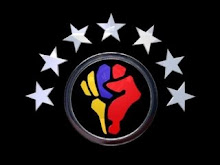



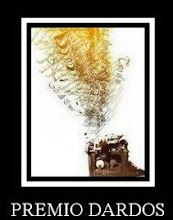











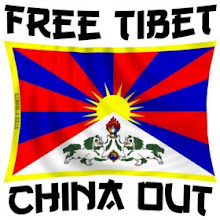










.jpg)


















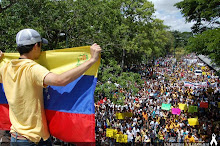





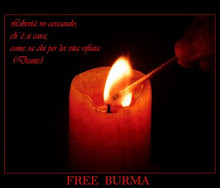

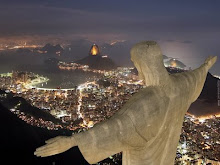




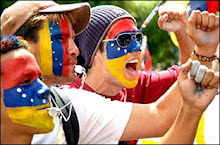

















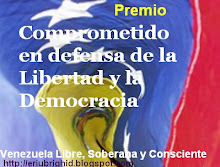









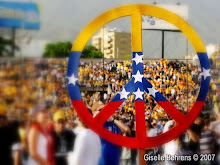

























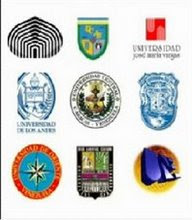


No hay comentarios:
Publicar un comentario